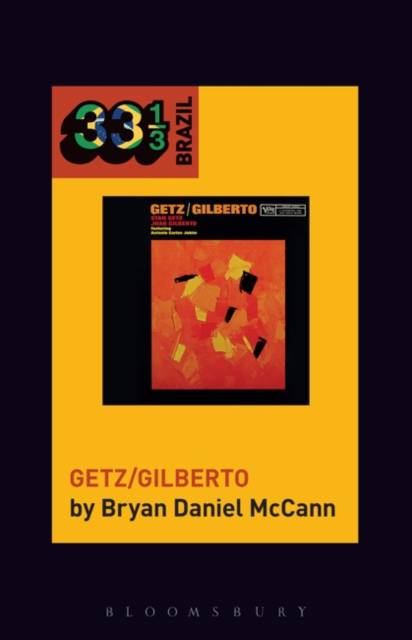
- Afhalen na 1 uur in een winkel met voorraad
- Gratis thuislevering in België vanaf € 30
- Ruim aanbod met 7 miljoen producten
- Afhalen na 1 uur in een winkel met voorraad
- Gratis thuislevering in België vanaf € 30
- Ruim aanbod met 7 miljoen producten
Zoeken
€ 161,45
+ 322 punten
Uitvoering
Omschrijving
Most die-hard Brazilian music fans would argue that Getz/Gilberto, the iconic 1964 album featuring "The Girl from Ipanema," is not the best bossa nova record. Yet we've all heard "The Girl from Ipanema" as background music in a thousand anodyne settings, from cocktail parties to telephone hold music. So how did Getz/Gilberto become the Brazilian album known around the world, crossing generational and demographic divides?
Bryan McCann traces the history and making of Getz/Gilberto as a musical collaboration between leading figure of bossa nova João Gilberto and Philadelphia-born and New York-raised cool jazz artist Stan Getz. McCann also reveals the contributions of the less-understood participants (Astrud Gilberto's unrehearsed, English-language vocals; Creed Taylor's immaculate production; Olga Albizu's arresting, abstract-expressionist cover art) to show how a perfect balance of talents led to not just a great album, but a global pop sensation. And he explains how Getz/Gilberto emerged from the context of Bossa Nova Rio de Janeiro, the brief period when the subtle harmonies and aching melodies of bossa nova seemed to distill the spirit of a modernizing, sensuous city. 33 1/3 Global, a series related to but independent from 33 1/3, takes the format of the original series of short, music-based books and brings the focus to music throughout the world. With initial volumes focusing on Japanese and Brazilian music, the series will also include volumes on the popular music of Australia/Oceania, Europe, Africa, the Middle East, and more.Specificaties
Betrokkenen
- Auteur(s):
- Uitgeverij:
Inhoud
- Aantal bladzijden:
- 152
- Taal:
- Engels
- Reeks:
Eigenschappen
- Productcode (EAN):
- 9781501323966
- Verschijningsdatum:
- 29/11/2018
- Uitvoering:
- Hardcover
- Formaat:
- Genaaid
- Afmetingen:
- 127 mm x 203 mm
- Gewicht:
- 272 g

Alleen bij Standaard Boekhandel
+ 322 punten op je klantenkaart van Standaard Boekhandel
Beoordelingen
We publiceren alleen reviews die voldoen aan de voorwaarden voor reviews. Bekijk onze voorwaarden voor reviews.







